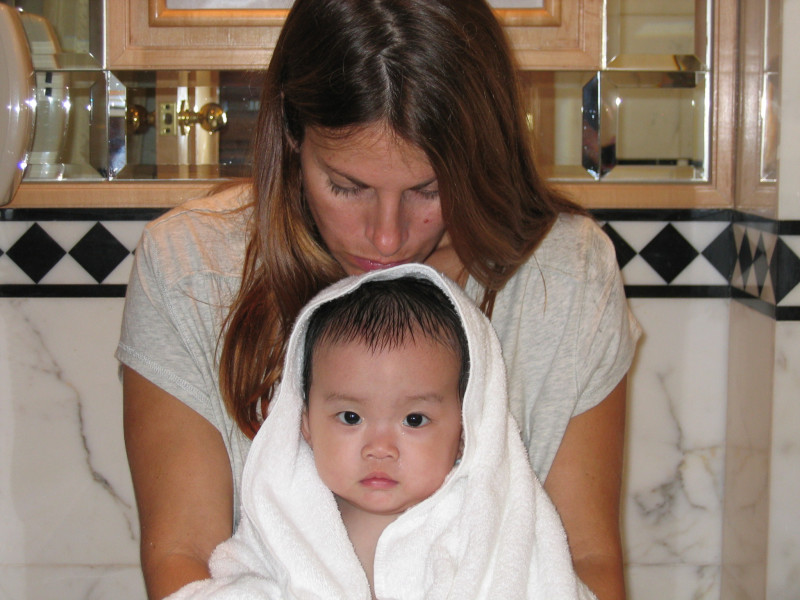Ultimately, however, the best parenting tool is a simple one: to give ourselves what we try to give our children. Compassion. Grace. Forgiveness. Encouragement. Praise. And of course, love. Taking time
to fill ourselves up is essential to being able to fill up our children. If we make ourselves a priority and commit to keeping ourselves emotionally charged up, we will most certainly become more emotionally available to our children. That doesn’t mean speeding around on caffeine to get all sorts of things crossed off your bucket list. It means taking time out to maybe even discover what does fill you up. For some people, it is a great conversation with a good friend. For others, it is getting out in nature, or maybe being creative, or having the time to read a good novel or go to a movie.
“Ya right!” you might be thinking, “I can’t even go to the bathroom by myself!”
When we can keep ourselves as emotionally filled up as possible, it is easier to practice compassion and forgiveness on ourselves. But of course, time is scarce. And when we struggle to find the time we need for ourselves, it is especially important to practice compassion and forgiveness towards ourselves. Schedules may be busy, but we always have two powerful self-care tools: our breath and our thoughts. When you realize your parenting is not up to par, instead of berating yourself, take a deep breath and say something compassionate to yourself like, “I’ll try to do it better next time” or “Wow, I really am more stressed out than I realized.” These two quick and simple self-care acts really can defuse your stress. The next time you are driving alone, practice saying nice, supportive things to yourself — just as if you were your own best friend. What would the most compassionate and forgiving person you can think of say to you right then? Something like, “It will be OK.” “You can always try again.” “You’ve had a hard day.” “You don’t have to be perfect.” “You are doing your best.” “Rome wasn’t built in a day.” “It is OK to make mistakes.” “Nobody is perfect.” “It takes time to learn new things.” “You’ll get it.” Some people put Post-it notes with compassionate comments around their home and car as reminders and to help them develop this new habit.
How would your life be different if the thoughts rambling through your head were compassionate, forgiving, graceful, loving and encouraging? Once you establish this internal language of compassion, do you think it would start to spill over into your external language? What would it be like to find yourself automatically responding with compassion, forgiveness and encouragement to your partner and children? It would probably diffuse tense interactions and reduce disobedience while creating a more satisfying family life for everyone. Parents that practice compassion and forgiveness experience reduced stress and a more emotionally stable day-to-day life, which in turn sets them up to be more like the parent they want to be. And that is the best parenting anyone can do.
Just deeply breathe in. Slowly exhale. And think, “It will be OK.”
Abbie Smith, LCSW | Former Holt team member


